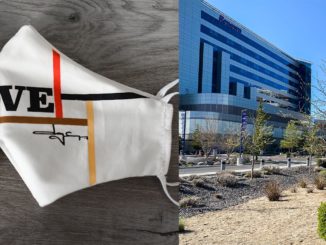We checked in with our TG&H Advisory Board Members this month to see what their experience has been during the last quarter and to share their insights. From operators to legislators, our board members shed light on their “aha” moments and thoughts of the future.
Is there one thing personally or professionally that has caused an “aha” moment for you that you’d like to nurture moving forward, and not forget about?
Joe Nayquonabe, Jr.: One big “aha” I’ve learned during the COVID-19 pandemic that I want to nurture and not forget is the wonderful feeling of being close to “in-balance.” This time away from the office, at home, with my kids, with my wife, with my dog. The ability to train for my marathons with a much more flexible schedule. It has all done wonders for my physical and mental health. I’m looking forward to keeping this going forward as we get back to some resemblance of “normal.”
Pam Shaw: We are a Tribal gaming family; my husband John is a casino general manager and I’ve devoted myself to a career in Tribal gaming as well. In addition, I was just elected to serve on the Osage Nation Congress. You can say that we have received a double tap with what is going on in Oklahoma, causing anxiety and uncertainty – but it has forced us to take a pause. With the reopening of the casinos, there is always the question of whether we are handling COVID-19 correctly and protecting our people enough; but I can say that the Tribal gaming industry as a whole has really stepped up to the plate and is doing an amazing job. Perhaps that “aha” moment is just realizing the magnitude of employees who have been affected; including those who supply our industry, as well as our own team members. And each gaming Tribe has unfortunately been impacted in a negative way.
Jay Garcia: During my tenure as lieutenant governor of Santa Ana Pueblo, I was able to consult and work with local and state elected officials on behalf of my Tribe. One item that resonates with me is the discussion I had with State Senator Benny Shendo of Jemez Pueblo. We talked about creating a foundation to further pursue opportunities with regards to philanthropy. This would benefit my community as a whole with emphasis on children/youth initiatives, educational opportunities, etc. This is a matter I would like to devote more effort to in the future, but with the COVID-19 pandemic, a lot of our plans and aspirations for this year have taken a back seat to more pressing matters associated with the well-being of my Tribe, and as a Tribal council member the pandemic has consumed the majority of our time.
Janie Dillard: During this national crisis our Tribe, like many others, had to figure out how to navigate successfully. One of the many “aha” moments for me is one we have been thinking about for some time now, and that is successfully working from home. In our environment our businesses had to continue to run during the pandemic and we needed to figure out a way to allow our people to successfully conduct their business from their home office. It wasn’t easy at first, but we figured out a way to maneuver through it and work with our IT teams to offer video conferencing and other tools to make working from home a seamless experience for our employees. Because of the success, it will be a new norm for many going forward.
Andrew Hofstetter: With the wave of COVID-19 crossing the globe into the United States, I have found that we are leaning heavily upon technology to reach out and communicate with others in the industry. With that being said, we have all pivoted a hard left to reach out to our personal and professional contacts, connections, vendors, solution experts and industry leaders. Since the rise of the COVID-19 pandemic I have personally attended quite a few Zoom meetings. Though it is not the same as appearing in-person, it does provide a helpful solution for carrying on meetings, commitments and obligations. It is this technology that has afforded us the opportunity to maintain important connections, seek out advice and solutions, troubleshoot and communicate in a manner that helps protect the Indian gaming industry. As humans, I feel we are hardwired for direct, in-person human contact, for it is not only engaging but stimulates dialogue with the in-person experience. Human contact, socializing, visiting and networking in-person are essential to everyone. As we adjust to switching over to Zoom and other social distancing preferences, we may find the mood is different and the experience is not quite the same. Regardless, we must adjust to our environment, situation and circumstance to carry on our efforts in the industry.
What are the biggest changes you are anticipating in your business between now and the end of the year?
Joe Nayquonabe, Jr.: I think the biggest changes will be the number of fellow team members around to get work done. Margins will be a huge focus coming out of furlough situations, and with less predictability on future earnings, it will be tough to ramp back up to full capacity by the end of this year. We’ll have to do more with less and push each other harder to solve the myriad of interesting opportunities in front of us.
Janie Dillard: Through the end of the year, we remain optimistic. We have complete confidence that Choctaw Casinos & Resorts will give people world-class gaming and entertainment while implementing every safety precaution necessary. We look forward to revising, streamlining and implementing improved measures as we progress towards a resilient future. Our latest expansion project is set to open in the spring of 2021, which will include a 19-story tower and feature 1,000 more luxury hotel rooms, an expanded gaming floor, new entertainment and dining options and more. Once complete, 1,000 new jobs will be created for southeastern Oklahoma.
Sheila Morago: Some of the biggest changes that OIGA anticipates in our membership’s gaming businesses between now and the end of the year all stem from the ongoing challenge of carefully offering gaming and entertainment to the public, while keeping everyone as safe and healthy as possible during the ongoing pandemic. What business looked like in early March is nothing like how it looks today, which in turn is very different than how it will likely look in a month or six months. Simultaneously, Tribes are taking every measure available to ensure the health and well-being of members and citizens, specifically via COVID-19 testing, tracking and treatment. Of course, in Oklahoma we are also watching the Supreme Court of the United States, in anticipation of its ruling in McGirt v. Oklahoma, which could return swaths of Oklahoma to Tribal nations. Add to that the ongoing lawsuit filed by 12 Oklahoma Tribes against Governor Kevin Stitt regarding the automatic renewal of gaming compacts in January 2020, and I’d say we should anticipate many changes, it’s just a matter of which change happens first.
Michael Peters: Our biggest challenge isn’t getting gamblers back. I have watched gamblers continue to play as monitors are falling due to an earthquake. They will show up and they have, as we’ve witnessed over the last month! Still, many Tribes have closed the reservations to non-residents with police checkpoints. I think our biggest challenge is reassuring our Tribal leaders that we can open our facilities without negatively impacting the Tribal community. Their fear, rightfully so, is that we may not know for up to two weeks. Their fear is a continued loss of essential government funding revenue. Their fear is how do they protect a vulnerable community? My biggest challenge is finding a way to best help them meet their fears and challenges.
Pam Shaw: The biggest challenge for my Tribe and other gaming Tribes is that gaming makes up a significant amount of our overall revenue. The biggest impacts will be when our Tribes look at budgets next year based on lower revenue expectations from our gaming operations. Each Tribe is funded differently and has different levels of business diversity, but recovering from the crisis in a safe manner is of the utmost importance to the great services that Tribal gaming money helps support.
Jay Garcia: Beginning at the start of 2020 I would have answered “how can we keep the momentum going from such a great 2019?” Today I ask myself, as many others are, “how do we regain any momentum as our economy slowly starts to reopen?” The biggest challenge I anticipate is how are we going to get our loyal guests of all our business entities coming back to us? It’s going to take a total team effort, from Tribal leaders/officials, management of our respective businesses and all the way through the ranks, of everyone doing their part to ensure our guests’ and team members’ safety and most of all trust and faith that we are doing our part to take all precautions for the overall enjoyment and safety of our guests.
Andrew Hofstetter: Pre-COVID-19, Tribal gaming was accustomed to operating at a high level at their gaming facilities, hotels, spas, convention centers, eateries and entertainment venues. With that being said, Tribal gaming had become a major destination to relax, unwind and have fun. As COVID-19 made its way to center stage, the importance of protecting the public, team members and Tribes had become the first priority. With the closure of Tribal Casinos, thousands of employees were either furloughed or laid off. The hardship was real. With the closure of Tribal casinos, there were no revenue streams coming in to support the Tribes and the Tribal membership with various, much-needed Tribal programs. The longer the casinos remained closed, the more dire the financial situation became for each Tribe. With the event of reopening their casinos with new COVID-19 safety measures and practices, it provided much-needed hope. As Tribal casinos open, they will find that not only have their gaming practices changed, but the frequency of the clients visiting may have changed as well. It will take a considerable amount of time to make up the lost gaming revenues, and it will take time for the public to frequent Tribal casinos at the levels they once did. I feel Indian gaming will continue to serve, however it will serve in a different manner that will not only take time, but it will take patience and understanding.



